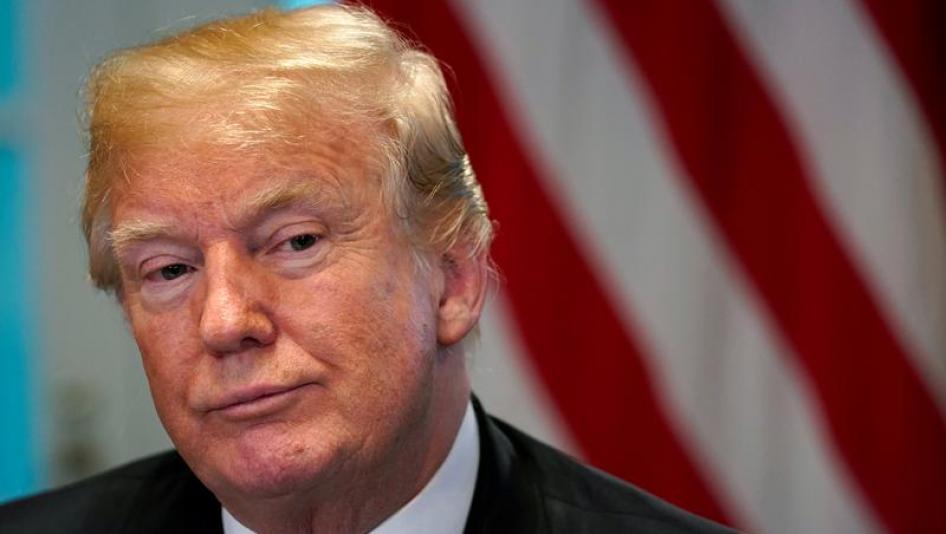Last night, President Trump put a bookend on a weekend of remarkably dangerous and unhinged tweeting with a tweet that he seems to think satisfies his obligations under the War Powers Act to notify Congress about possible military strikes in Iran.
Tweeting three days after US forces killed Maj. Gen. Qassem Soleimani, the head of Iran’s paramilitary forces, in an airstrike in Iraq at his direction, Trump indicated that he plans to escalate hostilities with Iran should the country retaliate.
He also thumbed his nose at the idea that federal lawmakers represent any check on his powers as commander-in-chief.
“These Media Posts will serve as notification to the United States Congress that should Iran strike any U.S. person or target, the United States will quickly & fully strike back, & perhaps in a disproportionate manner,” Trump wrote. “Such legal notice is not required, but is given nevertheless!”
These Media Posts will serve as notification to the United States Congress that should Iran strike any U.S. person or target, the United States will quickly & fully strike back, & perhaps in a disproportionate manner. Such legal notice is not required, but is given nevertheless!
— Donald J. Trump (@realDonaldTrump) January 5, 2020
There are a number of profound legal problems with Trump’s tweet.
For one, as Yale law school professor Oona Hathaway pointed out, a tweet is not sufficient to satisfy the War Powers Act’s requirement that the president notify Congress within 48 hours of any military action “in writing, setting forth … the constitutional and legislative authority under which such introduction took place, and the estimated scope and duration of the hostilities or involvement.”
Secondly, Trump’s threat that he will hit Iran “perhaps in a disproportionate manner,” coming as it did a day after he threatened to destroy cultural sites in the country, suggests that Trump is prepared to commit war crimes.
And third, Trump’s insistence that legal notice to Congress about military strikes “is not required” flatly contradicts the War Powers Act, which, as previously noted, requires presidential notification.
Alluding to these issues, the House Foreign Affairs Committee responded to Trump’s tweet by reminding him that “you’re not a dictator.”
This Media Post will serve as a reminder that war powers reside in the Congress under the United States Constitution. And that you should read the War Powers Act. And that you’re not a dictator. https://t.co/VTroMegWv0
— House Foreign Affairs Committee (@HouseForeign) January 5, 2020
But beyond specific legal problems pertaining to the War Powers Act and prohibitions in international law against disproportionate military strikes, Trump’s tweet illustrated his broader disregard for any sort of legal check on his power.
He may not be a dictator, but he certainly seems to view himself as akin to one — and as willing to flaunt international law.
For instance, Trump’s Sunday tweet came a day after he posted a thread threatening to strike cultural sites in Iran if the country retaliates for the Soleimani assassination.
“Let this serve as a WARNING that if Iran strikes any Americans, or American assets, we have … targeted 52 Iranian sites (representing the 52 American hostages taken by Iran many years ago), some at a very high level & important to Iran & the Iranian culture, and those targets, and Iran itself, WILL BE HIT VERY FAST AND VERY HARD,” Trump wrote.
….targeted 52 Iranian sites (representing the 52 American hostages taken by Iran many years ago), some at a very high level & important to Iran & the Iranian culture, and those targets, and Iran itself, WILL BE HIT VERY FAST AND VERY HARD. The USA wants no more threats!
— Donald J. Trump (@realDonaldTrump) January 4, 2020
But military strikes of that sort are prohibited by the Geneva Conventions, which ban “any acts of hostility directed against the historic monuments, works of art or places of worship which constitute the cultural or spiritual heritage of peoples … to use such objects in support of the military effort … [and] to make such objects the object of reprisals.”
This threat led to Iranian leaders comparing Trump to a rogue power that made the destruction of cultural sites a key part of its policy: ISIS.
Trump, however, wasted little time demonstrating that not only does he not feel constrained by international law, but he doesn’t particularly care about domestic ones, either.
And since the president has faced few consequences thus far for his abuses of power and involvement in federal crimes, it’s unlikely that the prospect of violating them will deter him from doing what he wants.
